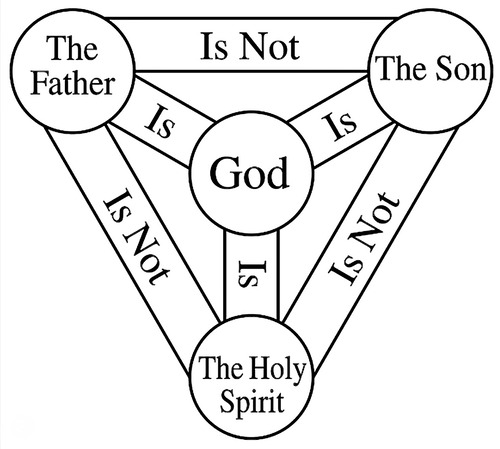When God Surprises Us: A Biblical View of Divine Consistency
Every parent knows the heart-wrenching experience of praying for a sick child. Consider a mother who faced this twice. When her firstborn had a dangerous fever, she prayed earnestly, and God granted immediate healing. Years later, when her second child faced similar circumstances, she prayed with even more confidence—after all, hadn’t God answered before? Yet this time, healing came slowly through medical means. Same mother, same prayer, different outcomes.
The scenario captures a tension many Christians face: Scripture clearly teaches God is unchanging in His character and purposes, yet our experience of Him often feels unpredictable. Does this mean God is inconsistent? Or is something deeper at work?
God’s Perfect Consistency (Divine Perspective)
From Scripture’s vantage point, God’s consistency is absolute and unchanging. His character never wavers (Malachi 3:6), His purposes stand firm (Isaiah 46:10), and His promises remain trustworthy (Numbers 23:19). This consistency manifests in three crucial ways:
- His unchanging nature reflects perfect attributes that never diminish or grow. His love never becomes less loving, His justice never becomes less just, His wisdom never learns or improves because it’s already perfect. The God who parted the Red Sea is the same God who hears our prayers today.
- His sovereign plan, established before the foundation of the world, encompasses every detail of history. Nothing catches God by surprise or requires Him to adjust His purposes. Even when He appears to “change His mind” in Scripture, He’s actually carrying out His eternal plan through human means and responses He’s always known would occur.
- His moral character remains consistent. He cannot lie (Titus 1:2), He cannot deny Himself (2 Timothy 2:13), and His standards of righteousness never shift with cultural winds.
Our Limited View (Human Perspective)
Yet from where we stand, God’s actions often surprise us. Why? Because we view reality through the narrow lens of our finite, time-bound experience. Consider three key limitations:
- We can’t see the full picture. Like travellers viewing a vast mountain range through a small window, we see only a fraction of God’s working at any moment. What seems inconsistent to us might be perfectly coherent if we could see the whole.
- We’re bound by time. We experience life as a sequence of events, while God exists outside time, seeing and acting upon all history at once. What appears to us as a change in God’s approach might be part of His consistent, eternal plan unfolding in time.
- We can’t fully grasp God’s purposes. Scripture tells us His ways are higher than our ways (Isaiah 55:8-9). What seems unpredictable to us reflects our limited understanding, not God’s inconsistency.
Bridging the Two Perspectives
God’s actions may surprise us while remaining perfectly consistent with His character and purposes. Consider these biblical examples:
Abraham faced the seemingly contradictory command to sacrifice Isaac—the son through whom God had promised to build a nation. Job experienced devastating losses that appeared to contradict God’s character as protector. Paul’s “thorn in the flesh” remained despite his prayers for removal. In each case, God’s actions surprised human expectations while perfectly fulfilling His purposes.
The key insight is this: God’s consistency doesn’t mean predictability from our perspective. He’s consistently wise, loving, and just—but His wisdom may lead Him to act in ways our limited understanding hadn’t anticipated.
Practical Applications—A Biblical View of Divine Consistency
This understanding transforms how we approach our relationship with God:
- In prayer, we can come with both confidence and humility. Confidence because we know God’s character is consistent – He is always good, always wise, always loving. Humility because we recognize that His answers might surprise us.
- In daily living, we learn to trust God’s character rather than our ability to predict His actions. We make plans while holding them loosely, knowing that God’s unexpected ways often prove wiser than our carefully crafted expectations.
- In trials, we find comfort not in knowing exactly what God will do, but in knowing who He is. His methods may surprise us, but His character never changes.
Conclusion: A Biblical View of Divine Consistency
God’s consistency and His “unpredictability” from our perspective aren’t contradictory—they’re complementary truths that enrich our faith. We serve a God consistent enough to trust completely, yet so much wiser than us that His ways often surprise us. This combination keeps us from both anxiety and presumption, teaching us to walk in faithful trust rather than relying on our own understanding.
The beauty of Christian faith lies not in being able to predict God’s every move, but in knowing His character so well that we can trust Him even when His actions surprise us. In this tension between God’s consistency and our limited perspective, we find not confusion but comfort—the comfort of knowing that while we cannot always predict God’s methods, we can always trust His heart.
A Biblical View of Divine Consistency—Related Posts
How can I trust God if I can’t predict His actions? Trust in God is anchored in His unchanging character, not in our ability to predict outcomes. Scripture reveals God is consistently good, wise, and loving (Malachi 3:6, James 1:17), even when His methods surprise us. Our trust rests on God’s sovereign character and promises, not on our ability to understand or anticipate His specific actions in any situation.
Does God treat everyone differently? While God’s character remains consistent, He deals with each person according to His sovereign wisdom and purpose. This isn’t inconsistency but rather perfect wisdom applying truth to different situations and people uniquely. Reformed theology teaches God works all things according to His eternal counsel (Ephesians 1:11), treating each person according to His perfect plan while remaining absolutely consistent in His character and promises.
What about God’s promises in Scripture? God’s promises in Scripture are absolutely reliable, but they often fulfil in ways we don’t expect. The Jews expected a conquering Messiah but got a suffering servant first—the promise was kept perfectly but fulfilled unexpectedly. God’s promises are sure but require careful biblical interpretation to understand their true nature rather than our preferred application.
If God is sovereign, why pray at all? Prayer is a means God has ordained to accomplish His purposes, not a way to change His mind. God ordains both the ends and the means—our prayers are real instruments He uses to accomplish His unchanging purposes, even though He knows the outcome from eternity past. This makes prayer more, not less, meaningful.
How do we distinguish between God’s “no” and “wait”? We often can’t distinguish in the moment—this is where faith becomes essential. Our responsibility is to continue in faithful prayer and obedience while trusting God’s timing and wisdom. The key is to hold our interpretations of God’s answers humbly while remaining confident in His character and promises.
Does God’s consistency mean He always responds the same way to similar situations? No, God’s consistency lies in His character and purposes, not in using identical methods for similar situations. God’s sovereignty means He can use different methods while remaining consistent in His character and purposes. Just as a wise parent might handle similar situations with different children differently, God’s wisdom may lead to different approaches while remaining perfectly consistent in His nature.
How should we handle disappointment when God’s actions surprise us? Disappointment often comes from our expectations rather than God’s unfaithfulness. Reformed theology encourages us to process disappointment by: 1) remembering God’s sovereignty over all circumstances, 2) trusting His perfect wisdom even when we don’t understand, and 3) allowing such experiences to deepen our faith rather than shake it. The key is to let such moments drive us back to God’s revealed character in Scripture rather than away from Him.
A Biblical View of Divine Consistency—Our Related Posts
Editor's Pick

The Christian Sabbath: Why Did Sunday Replace Saturday?
Consider this: God-fearing Jews who’d faithfully observed Saturday Sabbath for over a thousand years suddenly began gathering for worship on [...]

Did the Early Christians Worship Jesus? The Biblical Evidence
It was a startling transformation: Jewish fishermen who'd spent three years following this itinerant carpenter from Nazareth now begin to [...]

If Jesus is Messiah, Why Aren’t ALL Messianic Prophecies Fulfilled?
If Jesus is truly the Messiah, why hasn't world peace arrived? Why do Jews still face persecution? Why isn't the [...]

When Courage Fails: Will I Be Forgiven If I Deny Christ in Persecution?
The rooster crowed, and Peter remembered. In that devastating moment, the apostle realised he’d just done the unthinkable—three times he’d [...]

What Makes a Godly Dad? 5 Biblical Principles Fathers Need
Modern culture sends fathers mixed messages. Be strong but sensitive. Be involved but not overbearing. Lead but don’t dominate. With [...]

What Makes a Godly Mom? A Scripture-Backed Guide
In our culture’s confusion about gender roles and parenting, the timeless question remains: what makes a godly mother? While secular [...]

Paul’s Mandate for Men: Headship Or Servant Leadership? Or Both?
Modern Christianity has fallen into a trap. We've created an either/or battle between "headship" and "servant leadership," as if these [...]

Should We Stop Using Male Pronouns for God? Why Do We Say No?
A friend of ours arrived eagerly at his first theology class in seminary. But he quickly discovered something troubling: the [...]

Did Old Testament Law Force Women to Marry their Rapists?
**Editor’s Note: This post is part of our series, ‘Satan’s Lies: Common Deceptions in the Church Today’… Viral misinformation abounds [...]

From Danvers To Nashville: Two Statements, One Biblical Vision
30 years separate the Danvers Statement on Biblical Manhood and Womanhood (1987) and the Nashville Statement on Human Sexuality (2017). [...]
SUPPORT US:
Feel the Holy Spirit's gentle nudge to partner with us?
Donate Online:
Account Name: TRUTHS TO DIE FOR FOUNDATION
Account Number: 10243565459
Bank IFSC: IDFB0043391
Bank Name: IDFC FIRST BANK






